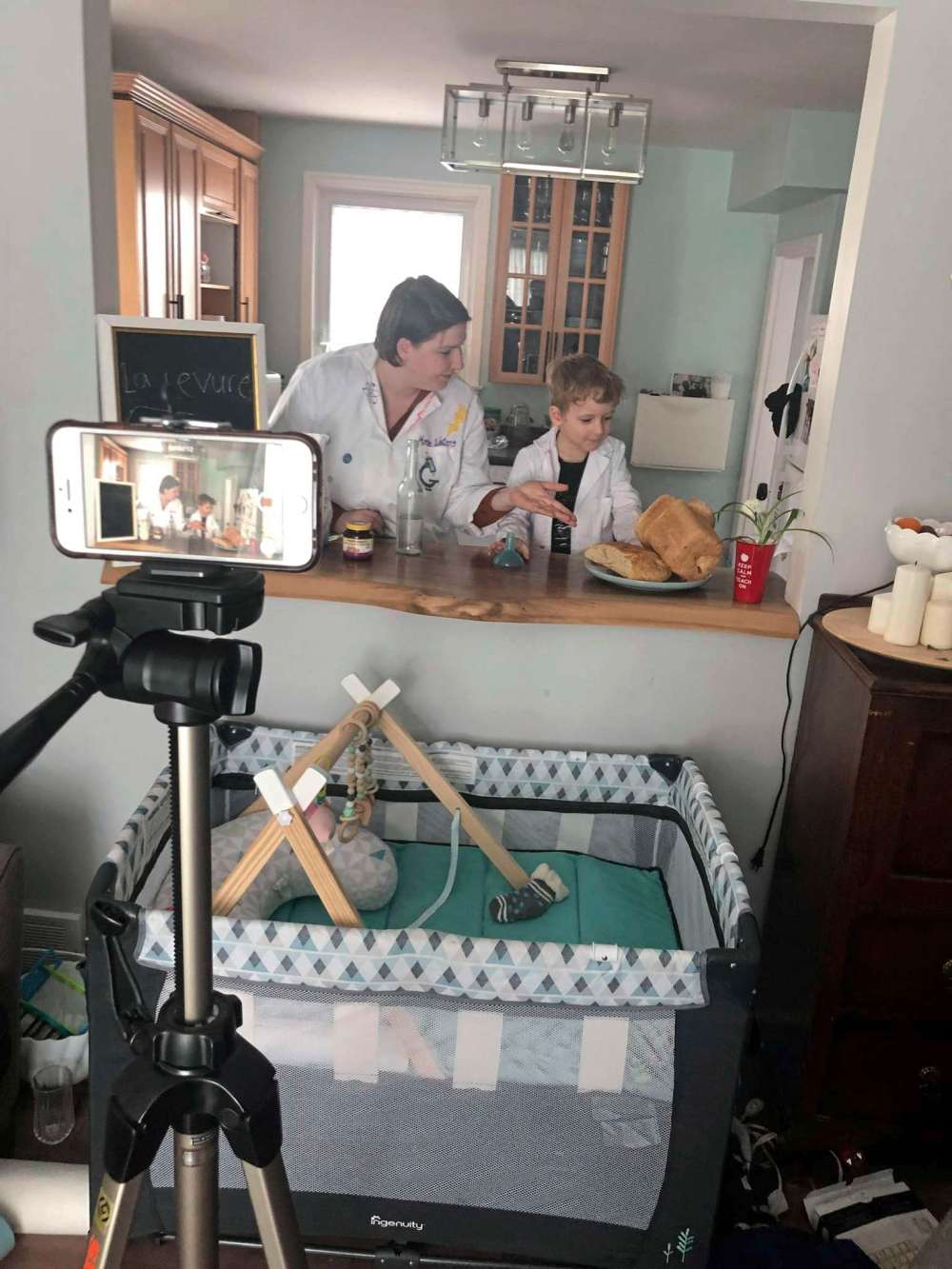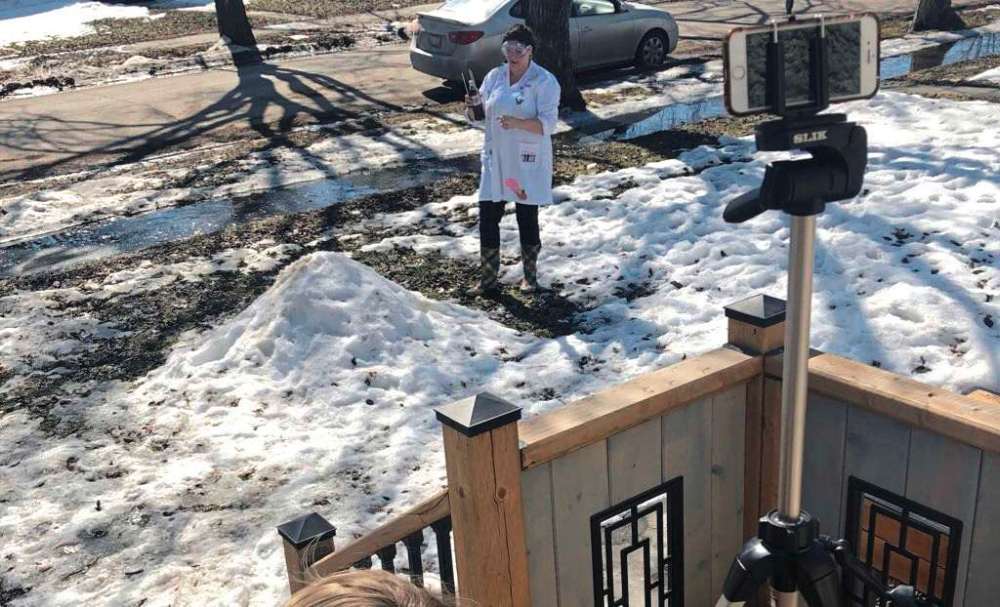Cooking up experiments for kids
Advertisement
Hey there, time traveller!
This article was published 13/04/2020 (2041 days ago), so information in it may no longer be current.
There are times when a kitchen can become a classroom.
Meghan Waters — a Grade 7 and 8 teacher at École Varennes — has recently been busy creating a number of science-focused experiments in her Old St. Vital home.

Currently on maternity leave after the birth of her second son, the educator started sharing her experiments – ably assisted by her four-year-old son Félix – on YouTube after realizing there was a demand for her digital lessons as parents started to take their kids out of school in light of the COVID-19 outbreak. Waters said it’s important to provide parents with French immersion educational resources, while making hands-on learning fun and engaging at the same time.
“I started my YouTube channel before the school closures took place, as lots of my friends were pulling their kids out the week before,” Waters, 30, said. “I put out a feeler on Facebook, and I had a positive response, so now I’m doing regular experiments.
”When it comes to her passion for teaching, the apple doesn’t fall far from the tree: both of Waters’ parents are former teachers – her mom was a resource teacher and her dad was a math teacher.
In fact, Waters uses an English-language book containing more than 500 science experiments given to her by her mom as a resource for some of her experiments, which she then translates into French, films, and posts to her channel.
“We have so many resources in English – think about Bill Nye the Science Guy – and think it’s important for kids to have the opportunity to see things in French, too. English is my first language and my emotional language. It’s my mother tongue, and I speak to my children in French, so this makes sense to me,” she said.
To keep things both practical and visual, Waters said she tries to choose experiments that utilize household items, which have included a pop bottle doubled as a rocket ship to experiment with air pressure. She also performed a timely experiment about how soap works.

“I’m in a unique situation, as I’m on maternity leave right now, so I have the creative freedom to pick and choose interesting things to work with, whether they are tried and tested or new things,” Waters said.
“When my French immersion kids come back to my classroom next year, it’s important to know that they’ve been exposed to French-language education, as this is key to their development.”

Our newsroom depends on a growing audience of readers to power our journalism. If you are not a paid reader, please consider becoming a subscriber.
Our newsroom depends on its audience of readers to power our journalism. Thank you for your support.



